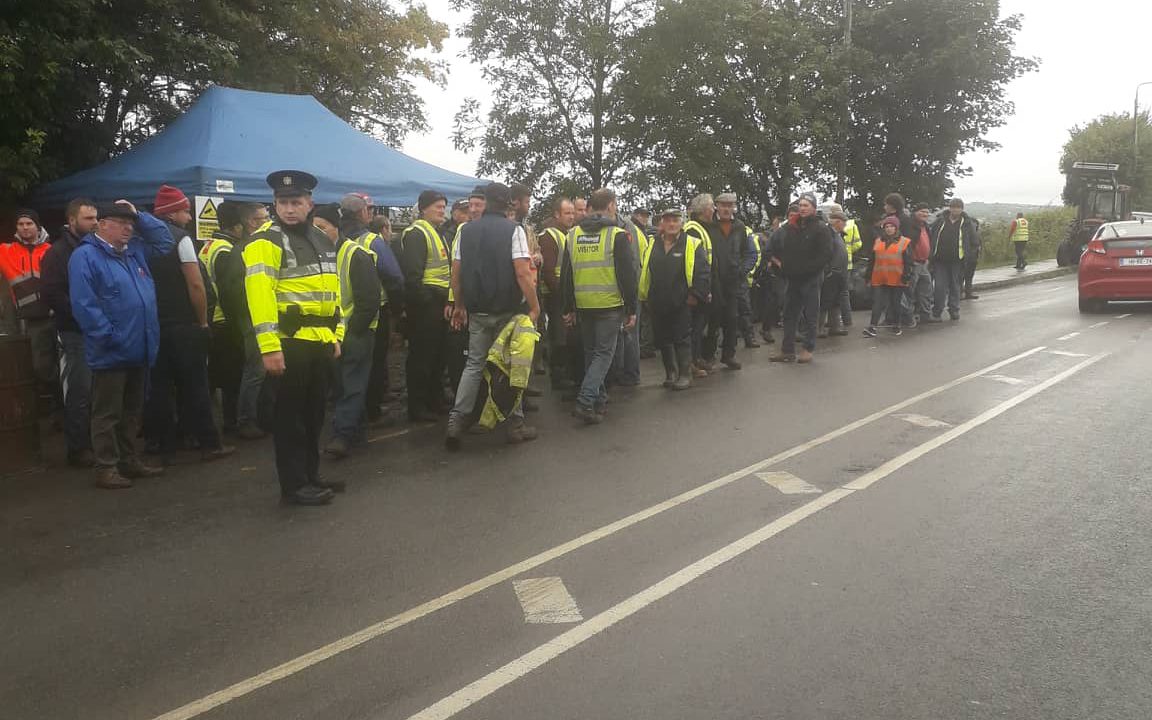Newly formed farm group representing protesters currently demonstrating outside meat factories around the country – the Independent Farmers of Ireland – has unveiled a 13-point manifesto following its first national meeting.
Held last night, Monday, September 2, the meeting also saw the election of three national representatives to negotiate and speak on behalf of the farm group.
The points put forward by the group range form legal action to pricing and specification, with labelling and quality assurance also highlighted.
- Legal action;
- Farmers operating at a loss;
- 30-month age limit;
- 24-month age limit;
- 16-month age limit;
- 70-day residency removal;
- Four-movement rule removal;
- Put Irish beef first;
- Labelling;
- Protecting farmers;
- Quality Assurance;
- Accurate information;
- Explanation.
The first point made by the group is that it wishes to see all injunctions removed with no farmer held liable for costs, either for court or anything else.
The next issue highlighted by the group is farmers operating at a loss. The group wants an annual “independent review of the beef supply chain, chaired by members of the EU trading standards to establish the value of a complete beef carcass, including the fifth quarter and the percentage of this allocated to the primary producer”.
The group has called for bonuses on cattle under 36 months of age. In addition, it wishes to see the 70-day residency and four-movement rule removed.
The Independent Farmers of Ireland has demanded “clear and transparent” country-of-origin labelling on beef and a demand for putting Irish beef first.
The organisation has demanded that processors must agree not to discriminate against any protesters who stood on a picket line in any demonstration.
Regarding the upcoming review of the QPS system, the group has sought an independent outside arbitration.
Finally, the Independent Farmers of Ireland is seeking an explanation as to how the most recent beef talks were seen to have reached a successfuul conclusion when the “primary producer is threatened with legal action by big businesses and prevented from looking for a wage increase by the competition authority” in an industry worth €2.9 billion annually.
